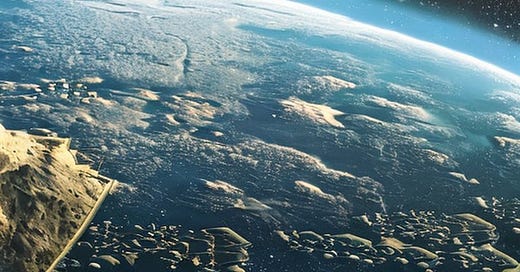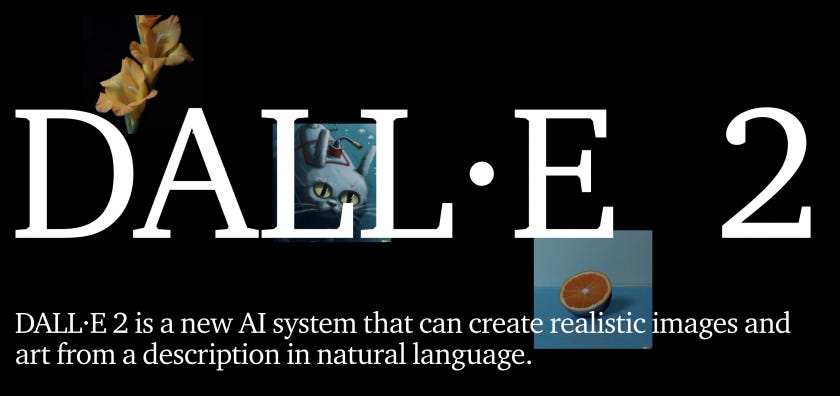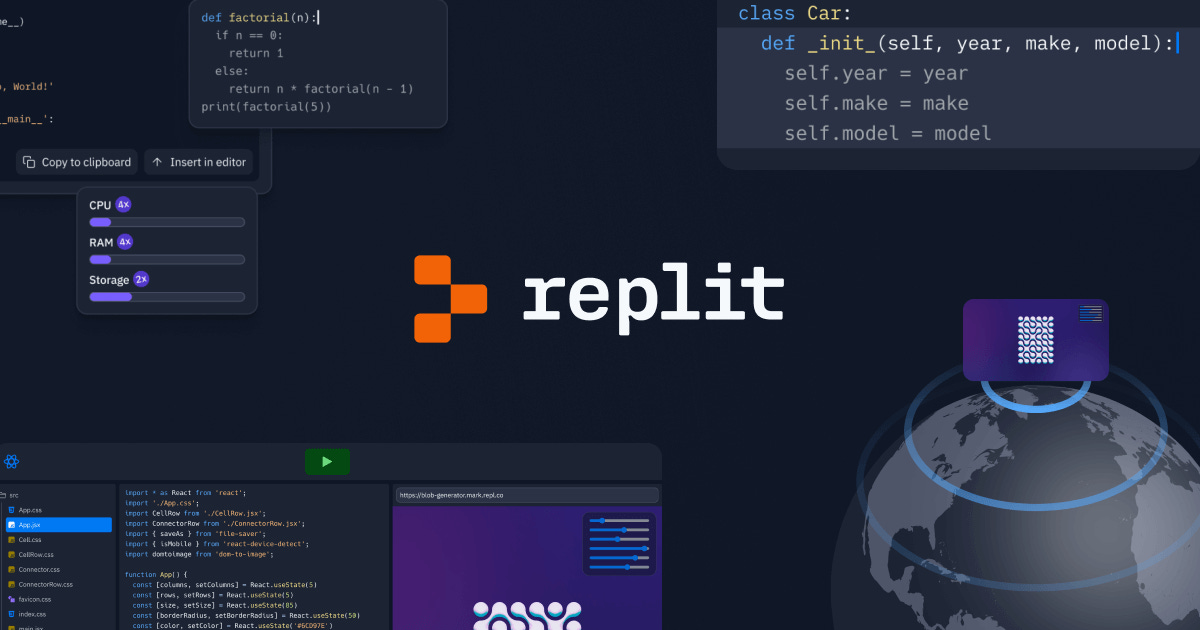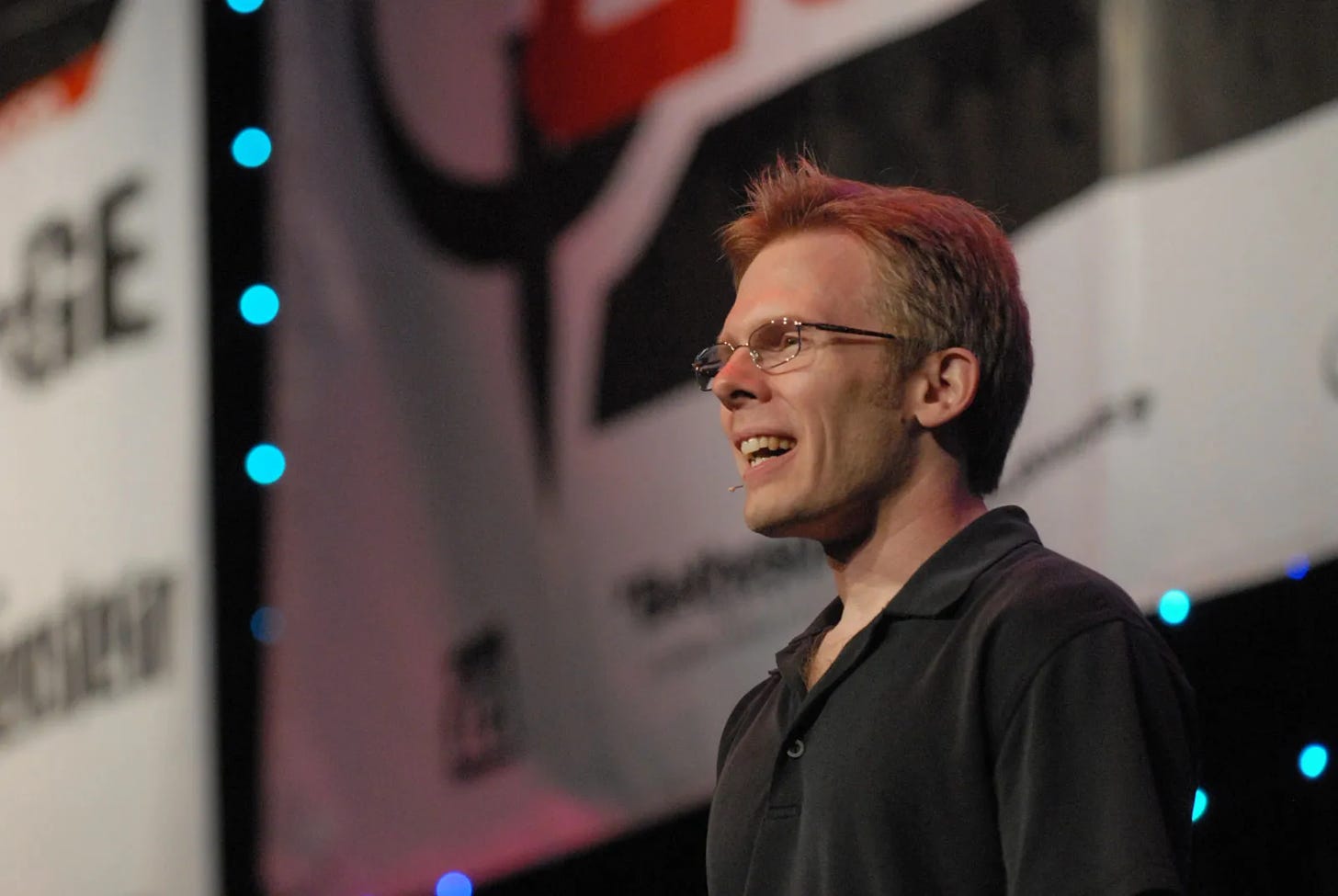Get Ahead Of The Future: An Interview With Amjad Masad
The community had questions for Amjad Masad, the founder, CEO, and Head of Engineering of Replit. I selected the best ones and got back some incredible answers.
Amjad Masad is the founder, CEO, and Head of Engineering at Replit, a revolutionary coding platform that does away with the need for separate apps to learn software development, perform team collaborations, edit and develop code, and much more, by having them all in a single, seamless place.
Amjad is not only a brilliant founder, but brilliant in pretty much every sphere you could name. I asked him earlier this month if he’d be interested in collaborating with Time Well Spent on an interview with questions taken from the community, and he happily agreed to the idea of engaging in a dialogue with you guys. I selected the best questions you guys left on Time Well Spent and brought them to Amjad, and naturally he did not disappoint in his answers.
Leave a comment after reading and subscribe for more events like this in the future.
Anonymous asks a great question, something I’ve been badgering Ben Horowitz about in our conversations: “What are the most impactful ways AI will change our lives in the next 5-10 years.” To expand on this a bit more, this question reminds me of a tweet you posted not too long ago about how, in the near future, Replit will enable creators to simply describe the software they want and have code generated for them automatically. This would change the world so drastically it’s hard to believe the future we’re headed for. What are some other ways you see AI changing things around? How crazy will it get?
To gain a bit of perspective on the subject it's important to recognize that the progress AI has made over time has been counterintuitive.
A good starting point of view is the vantage from mid 20th century science fiction. My favorite science fiction book is called The City and The Stars. The story is set in a future city, the only remaining city on earth, and in the city the governance structure is basically fully automated communism— AI is running everything, and nobody dies.
It explores the idea that the end-product of perfect automation is a world where the only thing left for [immortal] humans to do is create art. An interesting example in the book is a one thousand year art project. AI has replaced every mundane job, so art and creative ventures are where humanity’s focus has pooled.
This is a small illustration that the prevailing wisdom at the time was that computers would just make our lives more convenient by automating almost all possible non-creative work.
But technology has slowed its transformative advance over the world of human activity and labor since the end of the 20th century, and has more or less stopped having dramatic impact on the physical world in the ways that inspired the book. This is where progress has run counter to intuition, the progress cycle is now mostly confined to software.
We’ve made tremendous advances in the world of bits over the last several decades but not as much in the world of atoms, an important idea popularized by Peter Thiel. This is usually taken as a negative, but the progress being made in software is now having significant real-world impact, and it’s mostly all creative. This is now a much different kind of progress than the one early futurists and science fiction writers were expecting,
Products from Open AI are great examples. Chatgpt can write complete essays, and now it can even pass the three part US medical licensing exam without being especially trained on medicine and the bar exam without special training on law, among other impressive feats. Dall-E 2, Open AI’s text-to-image generator, can make classical art, digital art, photorealistic art, anything you can think of. We thought computers would do the dumb repetitive stuff, and that we’d do the creative stuff, but it turns out that computers are able to do some of the creative stuff, too.
People are starting to adapt to this shifting landscape to become more entrepreneurial. These days we’re starting to see some of the early adopters of Chatgpt use the platform as a startup basis for disrupting everything from business planning to advertising to Search to everything else. The small people who are entrepreneurial and driven in the near future are not going to just be 10x more productive, or even 100x, but will most likely be 1,000x more productive in whatever they do in the coming AI powered decade.
It’s going to be a crazy world to live in.
The least charitable way of putting this is you can no longer afford to be an npc, otherwise you’ll get left behind.
To sum up my ideas here I’d say that in the near future, the jobs that demand the bare minimum from people are going to disappear in the wake of AI, and that there’s going to be a sort of reintroduction of something like the old struggle for survival, the Power Process mentioned in Kaczynski’s essay on industrial civilization. Tax revenues in western nations will probably shrink with the obsolescence of human labor, policies like UBI will become less feasible, and so things may get really tough and I believe we’re going to see massive inequality of outcome.
But at the same time we’ll see massive equality of opportunity unlike anything we’ve seen—AI will reduce reliance on traditional sources of capital and centralized means of production for those who engage in the new AI driven economy. Those who are willing to be creative and work hard are going to be supercharged in the future.
And so a kid in his parent's basement will have more resources in hand than the average big tech CEO has now.
Anonymous also asks if the same AI tools which will generate software automatically will also put engineers out of a job, another great question. I remember around 2015 when journalists were mocking coal miners (who lost their jobs to shifting energy policy) by telling them to simply learn to code. When chatgpt came out, a platform that can write better than many people paid to do so, a few of the best tweeters I know said the same thing to those journalists now facing career obsoletion, that they had better learn to code. But what will poor NYT reporters do when not only writing is automated, but when coding is automated too?
Let’s go into where we are with this technology now.
I've been talking and thinking about what AI will do to software creation for a long time, and finally a lot of what I’ve said in the past has become real, and it all happened faster than I imagined.
The first time I proposed the idea that you’ll be able to describe the software you want and have the code generated for you was maybe around two years ago. Today Replit has a product in alpha that allows you to go from project description to project file structure, to eventually generating the entirety of the code.
There's a human in the loop that has to direct the process, but this shifts the role of the typical developer more toward the position of a project manager. We are very close to a place where you can simply speak your way through to having complete software, and we may end up being one of the first in the world to arrive here.
Here are a few thoughts about what the real world impact might look like in the near future—
Any time you reduce the resources, capital, or skill needed to start something—a business, a creative venture, or anything else—you get more people doing more amazing things than before. Smart, ambitious people from all walks of life get supercharged any time advances are made in the tools used to build out ideas.
We’re going to see a totally new crop of software developers. On one end, people who otherwise would never touch a line of code will enter the software development game. On the other end, the people who are very good at programming, what we call 10x engineers, are going to achieve productivity levels that are hard to imagine.
The best developers will have tools that make their already excellent work 1,000x easier to do. The John Carmacks of the world are going to be effective beyond imagination. If the best developers today can build billion dollar companies on their own, when assisted by future AI tools these individuals may have impact equivalent to multiple big tech companies combined.
So I don't think professional software developers will go away, just that we’ll see dramatic boosts to productivity at the very top and and the very bottom. I do think however that the middle-end will be threatened in the future. If you’re the kind of engineer that mostly does things with glue code I would be really worried. If you're just plugging together APIs and that's your main thing you may not have a job in the future.
So what will NYT reporters do when writing and code gets automated? They’ll have to learn to create something new.
Paul9910 asks something interesting. He wants to know what social media is going to look like in five years. What’s the next thing going to be? My guess is that there won’t be that much change for the same reason that there aren’t many new non-franchise films anymore—a lot of creative spaces have meandered through years of low competition, complete market dominance by a few lazy leviathans. I hope I’m wrong and that something new does develop. What do you think?
I think that social media will be dominated by AI. In the near future we may have some of the same platforms we have currently, but most of the content will not be generated by or featuring a real human. Your TikTok crush will more likely than not be an AI generated ass shaking cutie. And similarly the sort of Instagram fitness influencer bro benching 500 pounds will probably be AI generated. We’re going to see the rise of AI generated influencers, and the business of influence will become a lot more accessible and scalable. You’ll be able to create a seemingly real person who is attractive and extremely charismatic and have them rack up millions of followers, all while you’re in the driver's seat.
Another area of impact will be on the general time limitations of content creation. Recording and editing videos, recording and editing audio, even finding ideas for content, it all takes time. We will see full automation come to this process, and the level of content-flow we’ll see in consequence has no parallel in history.
You’ll be able to create multiple versions of your actual self, and have your AI generated self do things that would simply take up too much time to do. You’ll be able to generate multiple YouTube video scripts in an instant with AI, plug your scripts into a platform that can generate video and audio of yourself saying the scripts with all your mannerisms and verbal quirks, and have a year’s worth of content in an afternoon.
To go into a bit more about content creation I think it’s important to mention the disruption these tools will bring to Hollywood.
Hollywood hasn’t really been touched by tech as much as people would think. Today you have HBO Max and Netflix and many other Silicon Valley funded media corporations, and the early assumption about them was that they’d eventually make Hollywood obsolete. But instead they subsist in large part on licensing the content that Hollywood has made, and they’ve only made going to the theater partially obsolete. The power to create narratives is still very centralized.
Hollywood has tastes that are not consistent with the tastes of the general public, and the people are unhappy with the entertainment choices they’re getting. They want something other than endless marvel remakes and political propaganda. Hollywood has been able to get away with this for a long time because the cost entering the fray of competition has been absurd, and high costs make certain institutions resistant to disruption. But by the end of the decade you’ll be able to make the equivalent of a marvel movie at home, Hollywood will finally have a serious challenger—the AI powered individual.
We’re going to have regular people collaborating on massive cinematic experiences and we’re going to see a great number of open source media assets that people can reuse. it's gonna be incredibly exciting.
Paul9910 also wants to know if social media in the future will cause increased polarization. I think the most interesting framing for this question is the one Marc Andreessen proposes: Does social media cause polarization or is it just a magnifying glass? My knee jerk reaction to this is that, well, of course social media causes polarization, everyone is completely nuts now! But then you read general Pytor Wrangel’s memoirs of the Bolshevik revolution and you realize people were crazy well before the internet. Am I underrating the influence that mass-consensus generation machines (Twitter, Facebook, etc) have on regular people?
I think a lot of the polarization we see today is downstream from natural envy. I think envy is a dominant emotion driving a lot of what we see on our current social platforms. The coming AI decade will supercharge the most driven and ambitious people, and they’ll become incredibly wealthy. In response, the deeply envious will sink even deeper, and this will drive further polarization more than anything else.
I see this all the time. There’s tremendous envy toward successful people in tech, especially from traditional media outlets. There’s never any critique of the technology itself, people still drive Teslas and watch Space X rockets re-enter the atmosphere. But there’s still significant hostility toward the people behind these advancements, which makes no sense. It’s just envy.
When I get people trying to dunk in my tweets they never critique anything I’ve done, instead it’s all character attacks. The only people who do this are the people who want what you have but aren’t ambitious enough to try and get it, and the politics of these kinds of people are usually consistent with this.
So I don’t think social media itself has ever caused polarization, I think it just accelerated what was already there.
Ali Arain asks: What are some personal goals you’ve set for yourself? I think he means non-business goals, which makes things more interesting. Are you going to write more this year? Read more? What will you do?
The tough thing about this question is that I just see so much opportunity.
There’s overwhelming opportunity for growth, for Replit, my investments and influence, my contribution to the world. It’s actually hard not to take every moment of free time and use it to do more work.
One of the main things that sets people apart in terms of outcomes in life, in my opinion, is ability to detect opportunity. This ability is hugely valuable and underrated for success, and of course sometimes you have to just work hard to create and capture that window where positive things can happen.
I feel like i'm in that window right now. Shifting market dynamics and massive technological changes like the ones we’ve discussed have all worked together to create a huge moment for myself and how much I can do in the world.
So trying to think of non-business goals right now is pretty hard, but outside of work I’ve been seriously trying to push myself in the gym. Have been lifting a lot of weights and have been seeing some progress on that front and I’m honestly pretty excited about it. Getting stronger and more fit may be my most explicit non-work goals. Deadlifts, squats, and benching at increasingly high weight, this is what I like and I’ve been happy doing this as a sort of hobby.
But I’ve been considering lately that I’d like to devote more spare time to friends and family. Ever since I moved to the US 10 years ago I haven't really had a lot of free time to create friends, bond with friends, so this is something I’d like to prioritize more.
In terms of more creative pursuits, I’ve been interested in learning more of the basics of neural networks and AI. I think neural networks are one of the most fascinating things we’re able to produce, a sort of brain inside a computer. And I understand the bare basics of a neural network’s component parts, but I don’t yet have a conceptual level philosophy for why these parts work the way they do. Just generally one of the main driving forces in my life is trying to understand the really big questions, and this is a big question.
The questions behind the idea of neural nets are also something I consider very underrated and gaining conceptual ground here is also something I’m interested in. What is conscious awareness? How do organic neural networks produce subjective experiences and identity? Breaking down the really big ideas is an underrated part of making real world progress.
What is humanity? What is our past, where we came from, what did our past look like? Where did the universe come from, why is there something rather than nothing? These questions started in philosophy and eventually became the foundational pillars of today's science.
The big questions about consciousness and its relationship to the brain have served as the basis of AI and AI progress, and the cool thing is that AI itself may be able to deliver insights into this and other age old age questions, so I have an interest in seeing this happen.
Anna C has a very broad question for you. She wants to know how we can ensure the survival of humanity into the future. I think there are a few ways that our species may be faced with existential risk, but the most pressing risk now is probably the fertility crisis. Sub-replacement level fertility is going to make a nontrivial number of peoples and cultures go extinct. The worst part about this is that it’s happening almost exclusively in the most advanced nations in the world, the nations that produce our best problem-solvers, the people who will build-out the future into something gleaming and fantastic. Is there a tech solution to this problem? Are we gonna make it?
I was recently thinking about Peter Zeihan’s argument for the collapse of China, which is a good starting point to get into the topic of population.
Peter Zeihan thinks that China will be economically dead in a decade as a consequence of the one child policy implemented some years ago and the ensuing collapse of the Chinese population. In my view, the CCP has all the intellectual and social resources at hand to stave off any harmful changes attendant to falling total fertility. I imagine that if things do get dire enough, we’ll see artificial wombs and even human cloning come to the foreground as solutions. And China’s willingness to impose on its people like what we saw during the early covid situation tells me that, if the technological solutions don’t work out, China may just conscript its women to do their duty.
So the practical realities of the fertility crisis are pretty simple, there’s nothing in physics that prevents humans from producing more humans in synthetic wombs or in some other way. Opening immigration is another simple solution, there are a lot of ways advanced nations can go about solving this problem.
I'm not convinced that this issue is something that will dramatically change the world, but let’s imagine for a second that it is a serious problem and there’s not much we can do about it. Population is in free fall everywhere and there’s no way to roll it back. The AI tools we’ve discussed would in this scenario empower the few people remaining on earth to at least partially compensate for the labor of the millions of people no longer in the workforce. Even in the most dire scenario I believe that the most driven people can always come out ahead, no matter the problem they’re facing.
To make a loose but illustrative example—Elon went into Twitter, slashed 75% of the employees, and now the company ships features faster than ever before. Smaller numbers of people don't directly translate to smaller economic value generated. The economic impact of Silicon Valley punches way above its weight in terms of population. So again, the idea that population decline means economic decline is not super convincing to me. This might have been true in pre-industrial society, but in an advanced civilization I think we find that population and GDP decouple.
I do think though that there’s something deeply sad about this, even if I don’t think it presents an existential risk. Why don't people want to have children? Why don't they care about their civilization’s continued existence? These are very important questions, and I’m optimistic that we’ll find the answers in time.
Subscribe to NeoNarrative
A New Way of Knowing



























Thank you both for putting forward and responding to my Q. It's clear Amjad that having children is the ultimate act of hope. People will not have children in the absence of hope. People will not want to replicate in a civilization that they feel they have no stake in. We are moving apart technologically from socially. There was a self-satisfied video on Chatham House website , now removed, that purported to show London in 2050 with hubs in Central London to collect your designer babies and electronic ads across Picc Circus showing how you can order yours . The streets were empty...they didn't even have to answer my Q "Where are the people? what do you know we don't". People are working with this agenda in mind...I call them people, but...